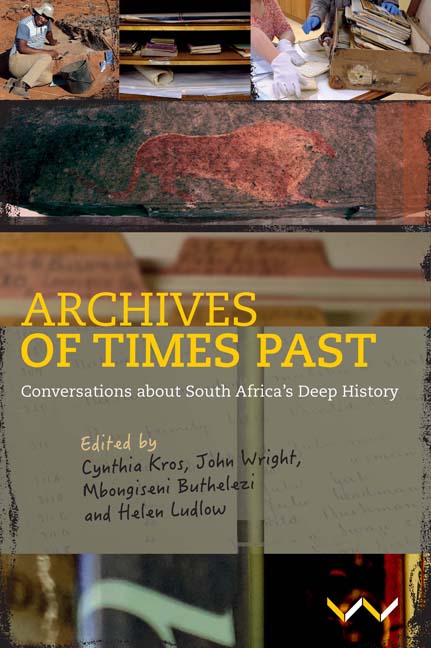Book contents
- Frontmatter
- Contents
- List Of Illustrations
- Acknowledgements
- Editorial Note
- Map
- PART I FIRST THOUGHTS ABOUT THE ARCHIVE
- PART II COMMENTARIES AND CONVERSATIONS
- PART III BECOMING EXPLORERS
- PART IV ENGAGING WITH ARCHAEOLOGY AND ROCK ART
- PART V CONFLICTING OPINIONS
- PART VI FURTHER THOUGHTS
- Glossary
- Contributors
- Index
Chapter 1 - Exploring the Archive of the Times before Colonialism
Published online by Cambridge University Press: 26 May 2022
- Frontmatter
- Contents
- List Of Illustrations
- Acknowledgements
- Editorial Note
- Map
- PART I FIRST THOUGHTS ABOUT THE ARCHIVE
- PART II COMMENTARIES AND CONVERSATIONS
- PART III BECOMING EXPLORERS
- PART IV ENGAGING WITH ARCHAEOLOGY AND ROCK ART
- PART V CONFLICTING OPINIONS
- PART VI FURTHER THOUGHTS
- Glossary
- Contributors
- Index
Summary
FOREGROUNDING THE ARCHIVE
This book is concerned with the times before the establishment of European colonial rule in southern Africa. Colonial rule began in the south-western Cape in the 1650s and gradually extended eastwards and northwards. It reached the areas that are now northern Limpopo Province and Zimbabwe in the 1890s. The focus of the book is on exploring a range of materials that historians and others have used as sources for finding out about the history of African societies before these dates.
When we first started thinking about this book, our aim was mainly to challenge and displace what we saw as common stereotypes and misconceptions about southern Africa's history before colonial times. As we began to investigate where these stereotypes came from, we thought more and more about the question of where historians find their source materials. We shifted our focus to thinking about the sources for histories of the past before the establishment of colonial rule. What are these sources, and where do we find them? The chapters in this book tackle these questions from a number of different angles.
Records of the past in all societies are always incomplete. Researchers who specialise in studying the past have to work with what traces or remains of the past they can find. Historians and other scholars who specialise in researching the history of southern Africa before colonial times have learnt to identify traces of the past in certain ideas, physical materials and social practices that exist in the present.
For a start, oral accounts of the past told by knowledgeable people today can be useful sources. Then there are many oral accounts of the past told by Africans in colonial times and recorded in different written forms. These include unpublished documents, newspaper articles, history books, novels and plays that we can still find in libraries today. Other kinds of written material also come to mind. Here we think of books written by travellers in the past who visited African societies, and unpublished letters and reports written by missionaries and officials who worked in, or visited, African societies.
- Type
- Chapter
- Information
- Archives of Times PastConversations about South Africa's Deep History, pp. 3 - 23Publisher: Wits University PressPrint publication year: 2022



